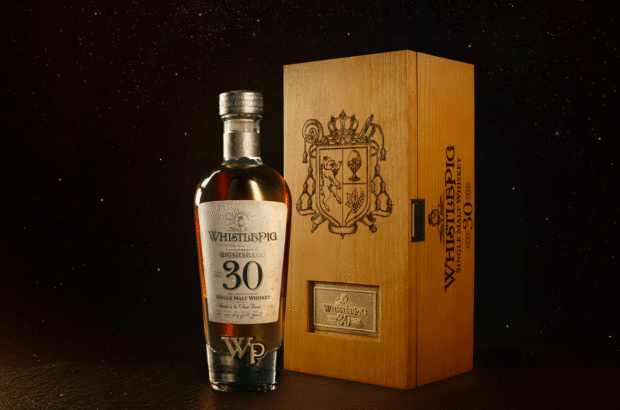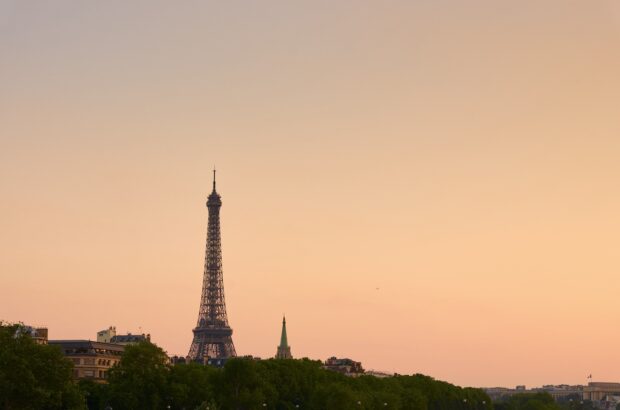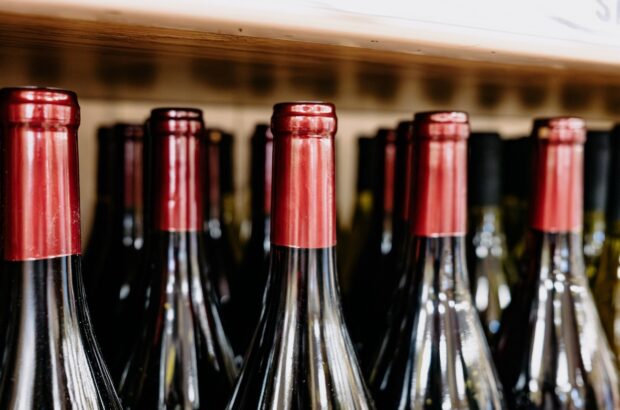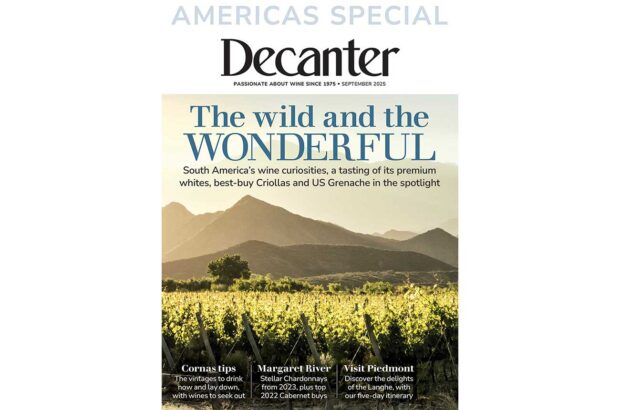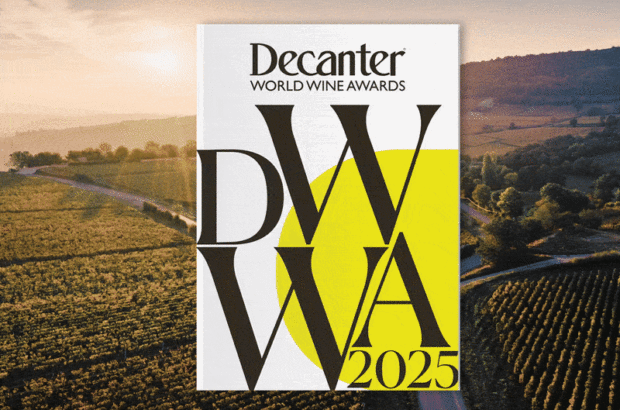Jane Anson gives her insider tips on where to find good wines at relatively low prices across Bordeaux.
The question I get pretty much more than any other is how to find reliable value in Bordeaux.
This is a region with 110,000 hectares, with 6,568 producers declaring a harvest in 2016.
The sheer bewildering choice is one of the reasons for paying a little bit more for a bottle of wine when looking for assurance over quality, but there are plenty of producers who manage to deliver it at lower price points.
I taste through thousands of wines each year at blind tastings for the appellations of Bordeaux, Bordeaux Supérieur, the Côtes, Cru Bourgeois and Grand Cercle de Bordeaux, and there are certain names that surface again and again – and cost no more than £30 a bottle and often under half that.
This is a selection of the wines that make it into my fridge or on to the table regularly.
Château Bauduc, Bordeaux Blanc
The classic unoaked Bordeaux white. Always difficult to suggest bottles from people that you know well, but the British Quinney family has lived in the Créon region of Entre deux Mers since 1999, and make a fresh, understated and extremely juicy white wine that matches well with food.
This is a classic Sauvignon Blanc that has been the house wine for the Hotel du Vin, Gordon Ramsay and Rick Stein for many years.
A quick walk through the vineyards here also tells you these steep slopes are perfectly exposed for maximizing the ripening sun.
Château du Cros, Bordeaux Blanc
I taste this blind every year with the Côtes de Bordeaux and it consistently seems to come out among my top five or 10 in the rankings, no matter what the vintage.
The Boyer family makes a lot of different wines here, from Bordeaux, Cadillac, Graves and Loupiac, many of them excellent, but the ones that always stands out to me are their well-balanced Mayne du Crois Graves red and the Château du Cros dry white, with 90% Sauvignon Blanc, 10% Semillon.
One to drink young to maximize on the fresh fruit flavours, so look for the 2017 and 2016s right now. Aged on the lees, so there is a richness to the bright fruit flavours.
Clos Floridène, Bordeaux Blanc
The late professor Denis Dubourdieu’s creation, and now made by his sons Jean-Jacques and Fabrice.
This spot in Pujols-sur-Ciron used to be a fully red wine property, but Dubourdieu recognised its sand-red clay-limestone terroir as an exceptional one for white (he compared it to Chassagne and Meursault), particularly as its location in the Ciron valley also means some of the coldest nights in Bordeaux – perfect for encouraging aromatics.
He replanted 22.7ha with Semillon, Sauvignon Blanc and a touch of Muscadelle.
The final blend is almost always an exact split between Sauvignon and Semillon, I’m still drinking the 2013 and enjoying it, although I would probably recommend heading to the 2014 or 2015 at this point.
Château Poitevin, Médoc
Up in northern Medoc in Jau-Dignac-et-Loirac, this property is worth discovering in both red (their main production) and (harder to find but brilliant) white wine.
It’s easily one of the most reliable, rarely-disappoints Cru Bourgeois that you can find.
Owners Guillaume and Natacha Poitevin work with oenologist Antoine Medeville to draw the best out of their gravelly terroir, on one of the most northerly plateaus in the winemaking Médoc.
The white is 90% Sauvignon Blanc, 10% Semillon and has that gunsmoke, flinty edge that makes your heart race and is not always easy to find in Bordeaux.
The red is a blend of just a little more Merlot than Cabernet Sauvignon, but still delivers tons of cassis and cedar typicity without having to pay serious prices.
Château Les Trois Croix, Fronsac
You won’t pay more than €20 in France for this brilliant Fronsac, owned by Patrick Leon, ex-Mouton winemaker who works with his Bertrand.
They now both consult around the world and in this wine offer up an amazingly reliable slice of Bordeaux expertise.
The mainly Merlot grapes (usually 80% in the blend, with 20% Cabernet Franc) are grown on the same type of limestone plateau that you find in St-Emilion and are rounded out with a oak ageing that usually sees around 30% new barrels.
I have loved pretty much every recent vintage here, but maybe search out the 2015 for its damson fruits rippling with minerality.
Château le Puy Cuvée Emilien Francs Côtes de Bordeaux
Again the price for the quality is extremely fair – perhaps €22 in France retail price, usually around £30 in the UK.
This is a wine that I often write about, but it’s worth putting in to this roundup of great value Bordeaux because its story (and starring role in The Drops of God manga) often means people expect it to be far more expensive.
Organic, biodynamic, low sulphur, long ageing of 24 months in barrels that are aged five to 40 years old.
Again very consistent across vintages, but look out particularly for the 2009 and 2015, both tasting utterly delicious right now.
This is a generous wine, well balanced, great tension, plump fruit, and always with a lick of salinity of the finish that speaks to the limestone in the soils.
Located at one of the highest spots on the Right Bank.
Château Roquetaillade La Grange, Graves
Dominique Guignard is president of the Graves appellation since 2015, and works at the family estate with his two brothers Bruno and Pascal.
Right down in southern Graves near the village of Bazas, these are wines that stand out for me regularly in blind tastings of the appellation, and that I feel totally confident in recommending to friends.
It’s the reds that really work the best most for me, fleshy well extracted black fruits that capture the balance and restraint of the best Graves.
The most enjoyable vintage in recent years has been the 2015.
Château de Chambrun, Lalande-de-Pomerol
There is a new crop of brilliant names coming out of Lalande-de-Pomerol, as the appellation continues to attract ambitious winemakers who are shut out of Pomerol price-wise.
This one has long been worth following as it has seen good levels of investment by previous owners Jean-Philippe Janoueix and then Silvio Denz.
But it has changed hands again and seriously interesting things are happening with a new and young team headed up by director Antoine Bourseau and cellar master Christophe Poulain.
The estate has grown in size and is increasing its emphasis on biodiversity and sustainable winegrowing.
Expect a glamourous Pomerol feel from a blend that is largely Merlot, but with a good 30% in most vintages of Cabernet Franc and Sauvignon.
Château Grand Village, Bordeaux
Owned by the Guinaudeau family of Château Lafleur, this is becoming a don’t miss wine in the AOC Bordeaux appellation.
In the family for centuries, it’s only been since 2000 that first Jacques and Sylvie Guinaudeau and now son Baptiste and daughter-in-law Julie have been in charge of the winemaking, employing their legendary attention to detail, with viticulture adapted not just to each plot but each plant.
They also have their grapevine nursery for massal selction of vines up here. The red is a Bordeaux Supérieur, although the grapes are almost in Fronsac (located in the tiny village of Mouillac), and in most vintages is a blend of more than 90% Merlot with the rest Cabernet Franc, vinified in cement with around 30% new oak barrels (some from Château Lafleur, or used here before heading over to Lafleur).
Plummy rich fruits, well balanced, more than punches above its weight price wise.
The white wines Grand Village Blanc and especially Les Champs Libre (although this last one may be creeping above my price ceiling for this list) are also seriously stunning.
Château Montlandrie, Castillon
I couldn’t finish without adding one Denis Durantou wine. The prices are, sadly, now starting to head upwards, but you can still find some in the range for £20 or under in the UK market, and if you do see them, snap them up.
Durantou is without doubt one of France’s most talented winemakers, and Montlandrie has been owned by him since 2009, planted to 65% Merlot, 20% Cabernet Franc and 15% Cabernet Sauvignon.
Castillon is another appellation that is having a bit of a renaissance right now, and this is one of the leading lights – a little more structured than some, certainly benefits from a few years in bottle before cracking open. An accomplished, succulent wine.



